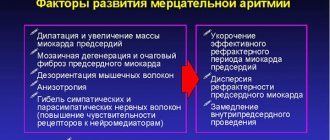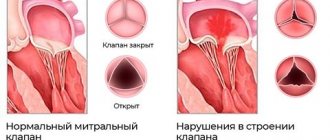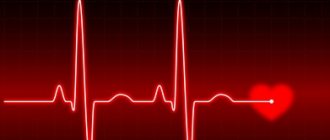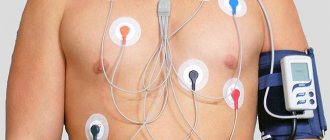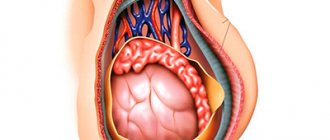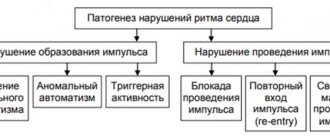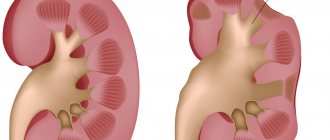What pills help with heart pain
June 28, 2021
7816
5
Content
- What kind of heart pills are there?
- Causes of heart pain
- Symptoms of a heart attack
- Top 5 best pills for heart pain
- Validol
- Nitroglycerine
- Corvalol
- Novo-Passit
- Cardiket
It is important to remember the main thing: if there is pain in the heart area, this symptom should never be ignored and you need to see a doctor as soon as possible to get examined. Only a doctor, having found out the cause of heart pain, can prescribe the necessary treatment. In addition, your home medicine cabinet should contain medications for heart pain that can, if necessary, relieve discomfort.
Pain in the heart is not a disease in itself, but only a symptom that indicates a number of problems: from dangerous conditions when the heart muscle is affected, to diseases of organs that are in close proximity to the heart (lungs, bronchi, pleura, stomach, lymph nodes, ligaments, muscles, bones). But in any case, enduring chest pain and ignoring it is very dangerous. You definitely need to find out the reason!
First aid measures
If the condition worsens sharply, then it is necessary to urgently call an ambulance or ask nearby people about it. Before her arrival, they take the following medications:
- "Aspirin";
- "Nitroglycerine";
- "Validol".
Aspirin is drunk first because it thins the blood and promotes the rapid absorption of other drugs. “Nitroglycerin” will dilate blood vessels and reduce the feeling of discomfort, and “Validol” will relieve anxiety. After the ambulance arrives, tell the doctors what heart pain pills you have used since the onset of the attack.
What kind of heart pills are there?
The most important rule: pills for heart pain should be prescribed exclusively by a doctor who knows your diagnosis. It happens that you have to take several medications with different active ingredients. All pills for heart pain are divided into several groups.
- Nitrates.
Such drugs help if the heart hurts due to angina pectoris; they are prescribed to people who have had a heart attack. Nitrates dilate blood vessels and reduce blood pressure, therefore they are prohibited for hypotensive patients when there is a suspicion of cardiac tamponade, collapse and shock. - Peripheral vasodilators.
These heart medications improve blood circulation by dilating blood vessels. Prescribed to slow the development of chronic heart failure. Contraindications: childhood and tendency to edema. - Sedatives and reflex agents.
Such medications are prescribed if pain in the heart has a stressful cause, caused by cardioneurosis, VSD. Such drugs for heart pain should not be taken by children, hypotensive patients and people with cerebral circulation problems. - Beta blockers.
These remedies for heart pain are indicated for people with hypertension. The dosage of beta blockers is determined strictly by the doctor and they are taken over a long course. Contraindications: shock and slow pulse. - Calcium channel inhibitors.
Similar heart medications are prescribed to people recovering from a heart attack, as well as for ischemia and arrhythmias.
For AV blockade, calcium channel inhibitors are prohibited. Read also: Popular drugs for lowering cholesterol Top 5 drugs for lowering cholesterol levels in the blood.
Causes of heart pain
Without an examination, it is impossible to determine the exact cause of heart pain. Moreover, pain on the left side of the chest does not always mean problems with the heart - these can be organs located next to the heart, and even far from it (abdominal organs).
Potential causes of heart pain include conditions that require urgent hospitalization and problems that can be treated at home (after examination and diagnosis, of course).
The most common causes of cardiac and extracardiac pain:
- acute diseases of the heart or blood vessels;
- angina pectoris (stable or unstable), when the heart hurts at rest or during exercise;
- acid reflux (reflux of acid from the stomach into the esophagus), heartburn, GERD;
- muscle damage or strain, bone diseases (sternum, ribs, vertebrae);
- osteochondrosis;
- diseases of the respiratory system.
The most serious condition for heart pain is, of course, a heart attack. In addition to excruciating pain in the heart, a person experiences shortness of breath, severe weakness, a feeling of fear, and cold sweat. If you have heart pain, you do not need to use home remedies for pain (especially if you did not have such heart pain before or it has become more severe, with new symptoms). Consult your doctor for an accurate diagnosis.
Symptoms of a heart attack
You should call an ambulance for the following symptoms of myocardial infarction:
- pain in the heart radiates to the jaw, neck, arm;
- shortness of breath appeared;
- nausea began;
- clouding of consciousness;
- my skin was covered in cold sweat.
By the way, women experience severe chest pain during a heart attack less often than men. Usually they have a feeling of tightness in the chest, tightness, nagging pain.
The heart may also hurt due to angina. What is angina? This is acute pain in the heart due to narrowing or blockage of the coronary arteries. This condition also requires urgent medical attention.
Validol
This remedy for heart pain can be bought without a prescription; Validol is available in the form of tablets and capsules. This is perhaps the drug that you think of first when you feel pain in your heart. The active substance of heart tablets is a solution of levomenthol in menthyl isovalerate. “Validol” is prescribed for heart pain against the background of panic attacks, when a person has shortness of breath, malaise, sweating, a feeling of fear, panic, etc. Validol is taken for the heart when the pain does not depend on physical activity, it is always of varying intensity and does not has a clear localization. In parallel with such pain in the heart, there may be headaches, tingling in the chest, and tachycardia. Usually, with such heart pain, a person’s blood pressure does not change, and his general condition is normal. "Validol" is placed under the tongue, without drinking water, and slowly dissolves.
“Validol” for the heart reduces vascular spasms due to stress, relieves pain in the heart due to fatigue and VSD, it can be taken after alcohol or drug intoxication. Validol is also prescribed for vascular spasms during hormonal fluctuations in women (menopause).
"Validol" has almost no contraindications, gently dilates blood vessels and calms the nervous system. This drug is prescribed with caution during pregnancy, breastfeeding and diabetics. Due to the sedative effect, Validol should not be taken by drivers.
Validol
Pharmstandard-Leksredstva OJSC, Russia
Cardialgia;
Angina; Motion sickness syndrome (nausea, vomiting due to seasickness and air sickness); Hysteria; Neurosis; Headache while taking nitrates. from 11
437
- Like
- Write a review
A course of treatment
During the active phase of pain in the heart area, the patient should remove the compressive clothing and relax. Such actions will alleviate the condition, allow you to understand the nature of the pain and figure out what to do next:
- stabbing and aching sensations in the heart area, which are accompanied by a rapid pulse, an attack of suffocation, fever and headache, are relieved with Validol. It is placed under the tongue. After 10-15 minutes relief occurs. If this drug is not available, use alcohol tinctures of lemon balm, hawthorn, peppermint and other herbs with a sedative effect. Typically, pain of this nature manifests itself due to stress, vegetative-vascular dystonia and overwork. They are unstable and often change location and intensity;
- sharp, dull and squeezing pain in the chest indicates angina pectoris. If discomfort manifests itself when walking, overwork and stress, then the problem relates to cardiac ischemia. First, take Validol or an alcohol tincture based on sedative herbs. When there is no effect, put Nitroglycerin under your tongue. The procedure can be repeated after 10 minutes. If it was not possible to achieve a result, you will need to call an ambulance;
- painful sensations of an acute and sharp nature, intensifying with movement and having a precise localization, indicate the development of back diseases. They alleviate the condition with the help of non-steroidal anti-inflammatory drugs (Nurofen, Ibuprofen), produced in tablet form and in the form of topical agents (ointment, gel, cream). For best effect, it is recommended to use them simultaneously.
Nitroglycerine
Nitroglycerin comes in the form of tablets, sublingual capsules, injection solution and spray. You can buy a remedy for heart pain without a prescription. “Nitroglycerin” belongs to the class of nitrates, peripheral vasodilators (vasodilators). Nitroglycerin has long been a proven drug for angina pectoris (attacks of chest pain).
The active substance nitroglycerin relieves spasm in the coronary arteries, quickly expanding the walls of blood vessels; improves nutrition of the heart muscle, stimulating blood flow to it; relieves heart pain associated with spasm.
“Nitroglycerin” acts instantly as soon as it enters the blood, and the effect lasts for a long time. To ensure that nitroglycerin is quickly absorbed into the blood, it is placed under the tongue. And after 3-5 minutes the drug for heart pain begins to act. If the first tablet does not help, take a second one.
IMPORTANT!
You should not take more than three Nitroglycerin tablets in a row with an interval of 5-10 minutes.
If the pain in the heart continues, urgently call an ambulance - thrombosis and heart attack may develop. Nitroglycerin is not prescribed for a heart attack with a strong decrease in pressure, for shock, hypotension, pulmonary edema, glaucoma, high intracranial pressure, or allergies to nitrates. Side effects include dizziness, nausea, rash.
Nitroglycerine
Medisorb, Russia
For sublingual and buccal use: relief and prevention of angina attacks;
as an emergency medicine for acute myocardial infarction and acute left ventricular failure at the prehospital stage. For oral administration: relief and prevention of angina attacks, rehabilitation treatment after myocardial infarction. For intravenous administration: acute myocardial infarction, incl. complicated by acute left ventricular failure; unstable angina; pulmonary edema. For cutaneous use: prevention of angina attacks. from 9
5.0 1 review
831
- Like
- Write a review
Symptoms and forms of IHD
With different forms of coronary heart disease, symptoms may differ. There are several forms of the disease.
Angina pectoris
The condition is characterized by attacks of squeezing or burning pain behind the sternum, which usually appears during physical and emotional stress.
It can radiate to the left arm, neck, shoulder, lower jaw, subscapular region, upper abdomen. For this reason, angina pectoris is also called “angina pectoris.” The duration of pain is usually several minutes. Depending on the stability of the course of the disease, stable and unstable forms of angina are distinguished. The first occurs only after physical or psycho-emotional stress, with increased blood pressure, tachycardia. As the disease progresses, the amount of activity available to a person decreases, and in the fourth class of pathology, he can no longer make any movement without developing attacks of chest pain.
Unstable angina can be new - a month or less after the onset of symptoms, progressive and early post-infarction. Progressive angina is characterized by a decrease in the load tolerated, for example, a decrease in the distance that a person can walk without the appearance of symptoms.
Unstable angina requires examination and treatment in a hospital; the risk of myocardial infarction is high.
Myocardial infarction
Develops acutely.
Due to a prolonged decrease in blood flow or its complete cessation to certain areas of the heart muscle, necrosis of the area of the heart muscle occurs - necrosis. The affected area can be of different sizes depending on the diameter of the affected vessel, which is why the disease is often called large-focal or small-focal myocardial infarction. The pain in this condition is intense, pressing and squeezing in nature, and attacks of burning “dagger” pain are also common. In many patients, it has a typical localization in the retrosternal region, but it can also involve the area to the left of the sternum or spread to the entire surface of the chest. In this case, the patient experiences “fear of death”, melancholy, a feeling of doom arises, and may be restless and very excited.
The localization of pain during myocardial infarction can be almost any; for example, sometimes pain occurs even in the abdomen. There is also a painless form.
With small focal lesions, the symptoms may be blurred, and diagnosis by ECG can be difficult.
Spontaneous Prinzmetal ischemia
Substernal pain occurs against the background of spasm of the coronary vessels and is not associated with exercise. Most often, the condition develops at night, between midnight and eight o'clock in the morning. Spastic angina is characterized by regularity and cyclicity, often repeating several attacks in a row with a short interval.
Post-infarction cardiosclerosis
After a heart attack, dead muscle cells are replaced with connective tissue. In this case, conductivity in the myocardium is disrupted, which may be accompanied by sensations of interruptions in the work or prolonged cardiac arrest, periodic fainting and dizziness. There may also be attacks of rapid heartbeat, chest pain, shortness of breath, pale or blue discoloration of the skin.
Heart failure
A disease in which the heart cannot fully perform its function of providing the tissues of various organs with a sufficient amount of blood. The condition is manifested by shortness of breath, swelling, fatigue, and poor tolerance to physical activity.
Heart rhythm disturbances
Arrhythmias are of various types. Accompanied by a feeling of palpitations or a decrease in heart rate. The patient may experience severe weakness, dizziness, nausea, and possible loss of consciousness. There are also asymptomatic forms of pathology, which become an accidental finding on the ECG.
Silent myocardial ischemia
It occurs without characteristic attacks of angina pectoris. It is usually detected accidentally on an ECG and after special diagnostic exercise tests.
Sudden cardiac death
More often it occurs due to ventricular fibrillation or flutter - erratic contraction of the heart muscle at high frequency. The condition develops unexpectedly and is manifested by the following symptoms:
- weakness;
- dizziness;
- loss of consciousness;
- noisy and rapid breathing;
- dilated pupils;
- decrease in respiratory rate;
- absence of heart contractions.
Sometimes the heart can be returned to the correct rhythm, but if this was not done in the first minutes, then the brain cells die from hypoxia, and an irreversible coma develops.
Corvalol
Corvalol for the heart is available in drops and tablets and is sold without a prescription. The active ingredients of the drug for the heart are ethyl bromizovalerianate, phenobarbital and peppermint oil. Corvalol is prescribed for heaviness in the chest, pain in the heart of a pressing, stabbing, cutting nature. 20 drops of Corvalol are diluted in a small amount of water and drunk or placed under the tongue.
IMPORTANT!
Call an ambulance if the pain in your heart after taking Corvalol does not go away within 15-20 minutes.
A doctor may prescribe Corvalol for the heart for neuroses, depression and stress, against the background of VSD, with excessive emotional stress and fatigue, with weather sensitivity and in the off-season.
Corvalol calms the nervous system, dilates blood vessels, has a mild anti-stress effect and normalizes sleep. At the same time, heart pills are prohibited for those who drive a car or are involved in activities that require increased attention. You cannot combine Corvalol with alcoholic beverages. Prohibited for children under 18 years of age, pregnant and lactating women, people with serious liver and kidney diseases. Side effects include: tinnitus, dizziness, decreased blood pressure. If you take the drug for a long time, withdrawal syndrome is possible.
Corvalol
Usolye-Sibirsky Chemical Plant, Russia
Corvalol is a sedative and antispasmodic drug, the effect of which is determined by the components included in its composition.
from 100
1247
- Like
- Write a review
Popular drugs for heart pain
The classification of cardiac drugs includes drugs that relieve acute pain and various painful sensations in the heart area. These include:
- Antiarrhythmics, Panangin or Asparkam, Cordarone, Amiodarone, Cardiodarone;
- Anticoagulants: Angioks, Heparin sodium, others;
- Acetylsalicylic acid (Aspirin), Valsartan;
- β-blockers: Sotalol, Timolol, Concor, Biprol, containing Bisoprolol and others.
These medications are prescribed after a heart attack.
Popular drugs include:
- Valerian, Corvalol (drops and tablets p/o) with a pronounced sedative effect.
- Nitroglycerin, Validol, Cormentol with a moderate vasodilator effect.
- Novo-passit, Persen-cardio with sedative and antiarrhythmic effects.
- Kratal, Cardiplant, stimulating myocardial activity.
- Panangin, Asparkam contains potassium and magnesium salts of aspartic acid, indicated for combination therapy of coronary artery disease, heart failure, arrhythmias in case of overdose of cardiac glycosides.
Novo-Passit
This heart pain remedy is sold in tablet and syrup form and does not require a prescription. "Novo-passit" is a sedative herbal preparation with complex action. Novo-Passit is prescribed for pain in the heart due to anxiety, fatigue, depression, and weather dependence.
These heart pills are prescribed for stress, heart pain due to VSD, anxiety and fatigue, cardialgia during menopause, as well as in the complex treatment of patients with heart pathologies.
It is not advisable to take the drug if you drive a car; Novo-Passit should not be combined with alcohol. If you are taking this remedy for heart pain, avoid exposure to the sun or tanning beds. Novo-Passit is prescribed with caution for diabetes.
Contraindications include: epilepsy, gastrointestinal diseases, alcoholism, traumatic brain injuries, pregnancy and breastfeeding, children under 12 years of age.
Novo-Passit
IVEX Pharmaceuticals, Czech Republic; Teva Pharmaceutical Industries, Germany
Novo-passit is a combination drug, the pharmacological activity of which is due to its constituent components of an extract based on medicinal plant raw materials with a predominantly sedative (calming) effect and guaifenesin, which has an anxiolytic (anti-anxiety) effect.
from 161
5.0 1 review
1730
- Like
- Write a review
Cardiket
"Kardiket" is a long-acting heart medicine. Dispensed with a doctor's prescription. The active substance of the drug is isosorbide dinitrate. “Cardiket” is from the group of nitrates that quickly dilate blood vessels. After administration, it begins to act within 15-20 minutes. This heart remedy lowers blood pressure (usually lower) and dilates blood vessels that have been spasming.
"Kardiket" is prescribed as a prevention of heart attacks and angina pectoris, to relieve pressing pain in the heart, and in complex therapy of heart failure.
"Cardiket" is NOT suitable as an "emergency aid" during an attack of angina. Contraindications include: hypotension, glaucoma, recent traumatic brain injury, cardiogenic shock. Side effects include: decreased blood pressure, dizziness, headache, dry mouth. If you take Cardiket for a long time, withdrawal syndrome is possible, so reduce the dosage of the drug for the heart little by little.
Peripheral vasodilators
Heart tablets from this category act on the smooth muscles of small vessels, leading to their expansion and improvement of function, due to which blood circulation and blood supply to the heart muscle are restored.
Such drugs are taken under the tongue, which allows them to achieve effect within 2 minutes due to direct penetration into the bloodstream system. According to their effects, such drugs have their own classification, which is related to which vessels the medicine dilates:
- venules - nitrites, nitrates, molsidimines,
- arterioles – hydralosine, diazoxide, minoxidil, potassium channel activators,
- arterioles and venules - isosorbide dinirate, sodium nitroprusside.
The drugs are used to eliminate pain in the heart, and in cases where the patient has difficulty breathing. The main advantage of the drugs is their speed of action.
Nitroglycerine
The product belongs to the category of nitrates. Maximum effectiveness is observed when eliminating an attack of angina pectoris, as well as during a heart attack, when in the chest, in addition to pain, there is also strong pressure that impairs breathing.
Contraindications for taking nitroglycerin are extensive:
- pregnancy,
- breast-feeding,
- childhood,
- increased intracranial pressure,
- recent traumatic brain injuries,
- stenosis (mitral),
- persistent low blood pressure,
- cardiac tamponade,
- consumption of Viagra less than 24 hours ago.
After taking the medicine, if there is no improvement after 5 minutes, you can take a second dose. If 2 tablets do not help relieve the attack, you must urgently call an ambulance. The effect of the drug lasts for 45 minutes.
In case of a particularly severe attack, it is permissible to take the drug under the tongue in combination with validol. In rare cases, the body has a negative response to the drug, which is expressed as follows:
- headache,
- rapid drop in blood pressure,
- dizziness.
Nitroglycerin is considered an emergency first aid drug for a heart attack.
- Heart pain: symptoms of what diseases? Aching, sharp or pressing pain in the heart, what to do?
Cardiket
The effect of the medicine begins 15 minutes after administration and lasts for several hours. If an attack of angina occurs, the drug does not give the desired effect. It is prescribed to relieve pressing pain. Contraindications against this drug are as follows:
- collapse,
- shock,
- persistent decrease in blood pressure,
- high intraocular pressure,
- high intracranial pressure,
- recent head injuries, both open and closed.
The drug is prescribed with a minimum dosage of 60 mg per day. Side effects do not appear often and are characterized by the following conditions:
- severe weakness
- bradycardia,
- headache,
- dry mucous membranes.
Do not stop taking the drug abruptly, but gradually reduce its dosage.
Monosan
An inexpensive but effective drug for dilating venous vessels, which can be taken to relieve pain in many heart pathologies. In case of ischemia, the medicine can significantly reduce the risk of developing an angina attack. Contraindications for use are:
- age up to 18 years,
- glaucoma,
- toxic pulmonary edema,
- acute heart attack,
- breast-feeding,
- pregnancy,
- hypotensive cardiac tamponade.
The following may occur as side effects during therapy:
- burning tongue
- nausea,
- vomit,
- excessive thirst,
- decrease in pressure.
Take the drug orally with ½ glass of water.
